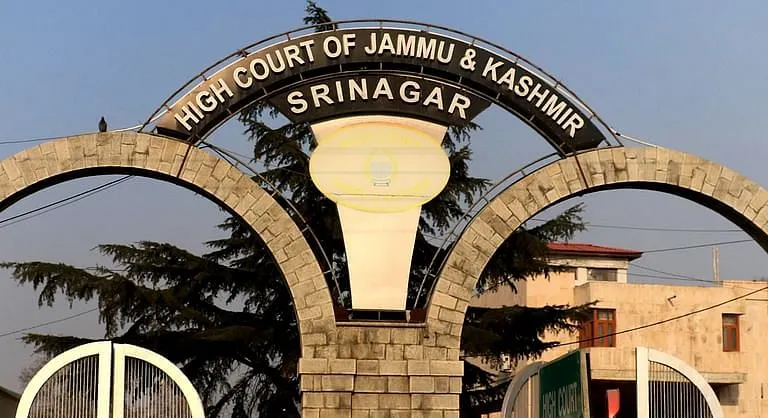Srinagar, June 3: The High Court of J&K and Ladakh on Friday stayed the exhumation of body of Amir Latief Magrey, one of the four persons killed in an “encounter” at Hyderpora here on November 15 last year.
Seeking response to an appeal filed by the government against the single judge bench judgment by June 28, a division bench of Justice Ali Muhammad Magrey and Justice Wasim Sadiq Nargal said: “Meanwhile, till the next date of hearing (June 28) before the Bench, the operation of the impugned Judgment shall stay”.
Allowing the petition, the single bench had asked the government to make appropriate arrangements for transportation Amir’s body to his native village of Thatharka Seripora in Tehsil Gool area of Ramban district with “promptitude and without wasting any further time.”
Amir’s father, Muhammad Latief Magrey through Advocate Deepika Rajawat had approached the court seeking return of his son’s body for “decent burial”.
On May 27, the single judge bench had ordered the exhumation of Amir’s body from the Wadder Payeen graveyard in north Kashmir’s Kupwara district, observing that the “State cannot deny constitutional right in the name of preventing law and order situation getting out of hand”.
The court had asked the government to make appropriate arrangements for transportation of Amir’s body to native village with “promptitude and without wasting any further time.”
If the body was highly petrified, the court had said that in that situation the State shall pay to Amir’s father a compensation of Rs 5 lakhs for “deprivation of his right to have the dead body of his son and give him decent burial as per family traditions, religious obligations and faith which the deceased professed when he was alive.”
The division bench’s order followed submissions by J&K’s Advocate General (AG) D C Raina and advocate Deepika Singh Rajawat on behalf of Amir’s father who appeared through virtual mode from Jammu.
The AG submitted that the relief granted by the Single Judge could not have been granted in terms of the Medical Science Analysis of the dead body which “envisages that the dead body gets putrefied only after a period of one month.”
He further submitted that Amir’s father before the single bench had not prayed for the sort of relief granted by the court and, therefore, the relief was beyond the pleadings on record.
The AG said that the Judgment is self-contradictory inasmuch as the Single Judge, on the one hand, has referred to the putrefaction of the dead body in advanced stage and directed the Government to act with promptitude without wasting any further time, but, at the same time, has taken a contrary view by directing exhumation of the dead body.
On the other hand, Advocate Rajawat submitted that the family demands mortal remains which she said is the constitutional right as rightly held by the Single judge of the court.
She submitted that the” right to decent burial of the dead body as per the religious belief is a right guaranteed by the Constitution as held by the Supreme Court in the case titled ‘Ramsharan Autyanuprasi & Anr. V. Union of India & Ors., AIR 1989 SC 459’. She opposed the grant of any interim relief in favour of the Government.”
“I do not want Rs five lakh but I want mortal remains. It is my fundamental right as enshrined in the constitution,” she said.
She said Amir’s body was not exhumed as was the case with two others— Altaf Ahmad Bhat and Dr Mudasir Gul— “because his family is poor from a remote area.”
After hearing the parties, the Court said, “We feel that this matter requires a final decision from this Court after hearing all parties concerned. Accordingly, let notice be issued to the Respondents”






